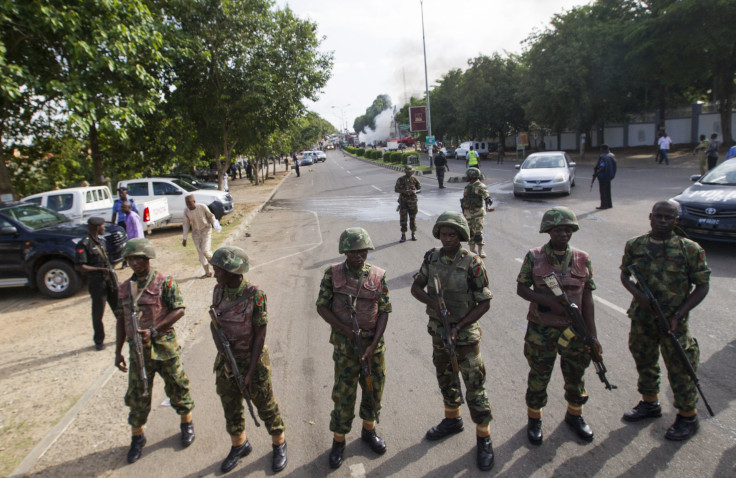Several Boko Haram Fighters Surrender To Nigerian Military After Group's Pretend Leader Is Killed

Hundreds of fighters belonging to the Islamic militant group Boko Haram surrendered to the Nigerian military, reports said citing the country's military officials. The surrender followed the Nigerian military's announcement Wednesday that it had killed the man who poses as the group’s leader Abubakar Shekau, in its videos.
Following the death of Mohammed Bashir, who is said to be the imposter who appeared in videos released by the group, the Nigerian military said, more than 260 fighters from Boko Haram, whose name means “western education is sinful,” surrendered amid the army's intensifying offensive against the group.
“In the course of those encounters, one Mohammed Bashir, who has been acting or posing on videos as the deceased Abubakar Shekau ... known as leader of the group, died," Major-General Chris Olukolade, a spokesperson said, according to Reuters.
The country’s military also said that, of the 260 fighters, 135 surrendered their weapons in Biu, in the northeastern state of Borno, which has been the group's base, while 133 others surrendered in other areas in the region, BBC reported.
Meanwhile, Nigeria’s President Goodluck Jonathan, speaking at the United Nations Security Council, asked the U.N. to help find more ways to counter the group’s advance.
"Evidence has shown that Boko Haram is sourced largely from outside our country," Jonathan said, according to BBC, adding: "Only by united action and firm resolve can we check this urgent threat to humanity and also build the enduring structures that will resist their re-emergence."
Boko Haram seeks to establish an Islamic caliphate in the country's north, and has killed more than 5,000 people over the last four years, nearly 2,000 of whom were killed in the first half of 2014 alone, according to Human Rights Watch. Earlier this year, the group kidnapped more than 200 schoolgirls in northeastern Nigeria, triggering an international campaign to secure the girls' release.
© Copyright IBTimes 2024. All rights reserved.












